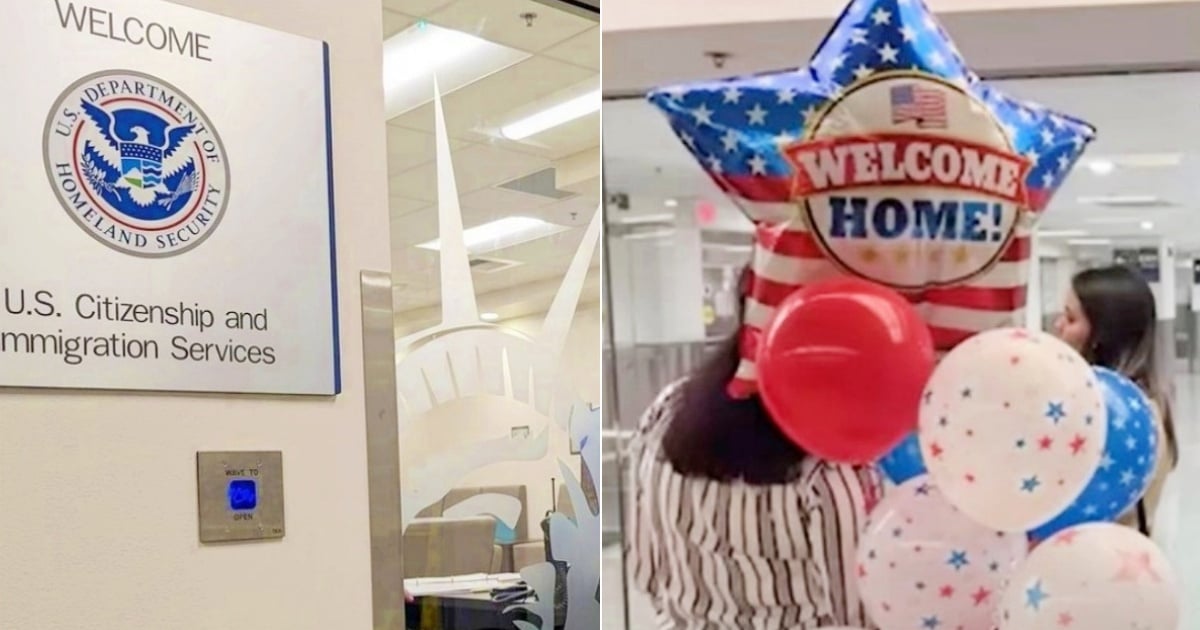The U.S. government has announced the resumption of immigration processing for individuals under humanitarian parole programs, in response to a federal court order issued in Massachusetts. This move reinstates activities such as permanent residency applications, which for Cuban nationals, were initially filed under the Cuban Adjustment Act after spending over a year and a day in the U.S. following entry on parole.
This significant update, first reported by Telemundo 51 citing official sources, represents a pivotal change after a period of administrative suspension. The decision to resume these processes was prompted by a court order issued on May 28 in Svitlana Doe vs. Kristi Noem, a legal battle aimed at reversing the previous halt on these applications.
The official confirmation came via a statement from Kika Scott, acting deputy director of the U.S. Citizenship and Immigration Services (USCIS). Scott confirmed the lifting of the suspension affecting humanitarian parole applications for citizens from Cuba, Haiti, Nicaragua, and Venezuela (known as the CHNV programs). This decision not only aids these specific groups but also extends to other humanitarian programs.
Among these are the Uniting for Ukraine (U4U) program, designed to assist those impacted by the conflict in Ukraine; family reunification processes, including the Cuban Family Reunification Parole Program (CFRP); and the Military Parole in Place (MPIP), which targets certain relatives of military personnel. The new directive, formally released on June 9, grants USCIS officers the authority to resume evaluating and adjudicating cases that had been on hold. However, it's essential to note that this resumption is contingent on the completion of an "additional review process" for each applicant, implying continued scrutiny of backgrounds and legal compliance.
Despite this broad reactivation, some initial application categories will remain paused. This includes sponsorship petitions for parole, cases related to Safe Mobility Offices in the Western Hemisphere (an initiative to process migrants before reaching the U.S. border), parole for Central American minors, and for international entrepreneurs, suggesting USCIS is still assessing or formulating specific protocols for these categories.
Implications for Cuban Nationals
Attorney Rosaly Chaviano highlighted the significance of this measure, noting that "The Government is committed to proceeding with the locations. People will receive responses to their work permits, residencies, asylum applications, TPS, and other submissions." She emphasized, however, that "each application undergoes an investigation process, and once completed, officers can indeed adjudicate these cases," reinforcing the notion of thorough review.
USCIS also announced the implementation of several technical adjustments as part of this reactivation. These include modifications to adjudication systems, updates to online communications, changes to necessary forms, and new instructions for customer service personnel. The aim of these adjustments is to ensure the smooth processing of parole applications and related benefits under the new guidelines.
Journalist Mario J. Pentón pointed out a particularly relevant aspect for the Cuban community: the reactivation of permanent residency procedures. For Cubans who entered the country under humanitarian parole and have met the "one year and a day" physical presence requirement, their adjustment applications under the Cuban Adjustment Act can now proceed. This is welcome news for thousands of Cubans anticipating their chance to secure legal status.
The formal reactivation of these processes was authorized through a memorandum issued by USCIS acting director Angelica Alfonso-Royals, allowing officers to continue adjudicating previously suspended cases. This memo also nullified previous suspensions by former directors Jennifer B. Higgins and Andrew Davidson, signaling a clear shift in the agency's internal policy.
A Legal Pathway Under Biden's Administration
Launched in January 2023 during President Joe Biden's tenure, the humanitarian parole program was developed as a legal, orderly, and safe route for migrants from crisis-stricken countries. Applicants had to meet specific requirements, including having a financial sponsor in the United States, undergoing thorough background and health checks, and traveling by air. This initiative offered a significant alternative to irregular crossings at the southern border.
By December 2024, a total of 531,690 individuals had legally entered the United States through the humanitarian parole program: 110,240 Cubans, 211,040 Haitians, 93,070 Nicaraguans, and 117,330 Venezuelans. Many of these beneficiaries have settled in South Florida, starting new lives there. However, since Donald Trump's presidency, humanitarian parole recipients have faced numerous challenges and a persistent threat to their status.
Understanding Humanitarian Parole in the U.S.
What is the humanitarian parole program?
The humanitarian parole program is a legal pathway established to allow migrants from crisis-stricken countries to enter the United States safely and orderly. It requires applicants to have a U.S. financial sponsor and to pass background and health checks.
Who benefits from the resumption of parole processing?
The resumption benefits individuals from Cuba, Haiti, Nicaragua, and Venezuela under the CHNV programs, as well as participants in other humanitarian initiatives such as Uniting for Ukraine, family reunification processes, and Military Parole in Place.
What changes has USCIS implemented for parole processing?
USCIS has made technical adjustments, including updates to adjudication systems, online communications, forms, and customer service instructions, to ensure a smooth and compliant processing of parole applications.
What challenges have parole recipients faced under Trump's administration?
Under Trump's administration, recipients of humanitarian parole have encountered numerous obstacles and a continuous threat to their legal status, complicating their path to obtaining a stable residency.
